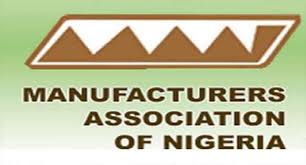
Manufacturers Demand Presidency, NASS to Patronise made-in-Nigeria Goods
The Manufacturers Association of Nigeria (MAN) yesterday said the presidency, National Assembly and the government uniformed agencies like military and police must patronise made-in-Nigeria materials following the presidential policy on the local content tagged Nigeria First Policy.
Economic Confidential reported on Monday that President Bola Tinubu approved the Renewed Hope Nigeria First Policy that mandates all federal ministries, departments and agencies to give absolute priority to Nigerian goods, services and know‑how when spending public funds.
The Minister of Information and National Orientation, Mohammed Idris, disclosed this to State House correspondents after the Federal Executive Council meeting at the Aso Rock Villa, Abuja.
Idris said the directive “puts Nigeria at the centre of every kobo the government spends.”
He added that an Executive Order to give it full legal force will be issued within days.
The policy directive mirrors the US President Donald Trump’s “America First” doctrine.
Recall, in February 2018, President Muhammadu Buhari signed an Executive Order 5 aimed at encouraging local content and initiatives in the economic sector.
The order was aimed at improving local content in public procurement with science, engineering and technology components.
The Executive Order was expected to promote the application of science, technology and innovation towards achieving the nation’s development goals across all sectors of the economy.
The president, pursuant to the authority vested in him by the constitution, ordered that all ‘‘procuring authorities shall give preference to Nigerian companies and firms in the award of contracts, in line with the Public Procurement Act 2007.’’
The Executive Order also prohibits the Ministry of Interior from giving visas to foreign workers whose skills are readily available in Nigeria.
It, however, noted that where expertise is lacking, procuring entities will give preference to foreign companies and firms with a demonstrable and verifiable plan for indigenous development, prior to the award of such contracts.
In 2017, then Senate President Bukola Saraki, launched a contest to promote made-in-Nigeria products.
The contest scheduled for three months aimed at showcasing the process and raw materials used in producing such locally made goods.
In a statement personally signed by Saraki, he said the contest would identify the good products that could be matched with investors and government agencies.
He stated that such agencies or investors would drive the products to the extent that they compete favourably with any similar product being imported.
The policy, however, saw little or no implementation as many experts accused the government of not walking the talk.
For instance, in 2020, Nigerians tackled members of the National Assembly after they reportedly rejected Innoson cars for the latest Toyota Camry.
Many Nigerians took to the social media to express their displeasure over news that Members of House of Representatives have chosen to buy foreign cars as utility vehicles, after rejecting an initial proposal to patronise local carmakers like Innoson.
The lawmakers resolved to purchase some 400 units of Toyota Camry 2020 model instead. Note that the exotic cars cost between N9 million and N12 million, depending on the variants. These price ranges exclude the cost of shipping cars to Nigeria.
Meanwhile, MAN applauded the Federal Government of Nigeria on its “Nigeria First” policy directive aimed at prioritising made-in-Nigeria goods and services, and development of local content.
Reacting to the policy, the Director General of MAN, Segun Ajayi-Kadir, in a statement on Tuesday described the initiative as a welcome development in the right direction.
“It is cheering news and long-awaited relief to resilient Nigerian manufacturers who, despite the tough economic environment, have demonstrated enduring faith in the potential greatness of the Nigerian economy,” he said.
Ajayi-Kadir said the body sees the initiative as a true and definite demonstration of the government’s commitment to promoting local industries, boosting economic growth, and creating jobs for Nigerians.
He said by giving preference to locally produced goods and services, the country can stimulate demand, increase capacity utilisation, and attract investments into the manufacturing sector.
The DG said effective implementation of the policy would scale investments and potentially boost GDP by 56%, reduce unemployment by 37% and increase firms’ willingness to employ from 1.5% to 22.6%.
“MAN believes that this policy will have a multiplier effect on the economy, leading to increased economic activity, improved GDP growth, and enhanced competitiveness of Nigerian industries.
“From earlier survey, the effective implementation of such an initiative (as should be stipulated in the consequential executive order) would scale investments and potentially boost GDP by 56%, reduce unemployment by 37% and increase firms’ willingness to employ from 1.5% to 22.6%,” he said.
‘Presidency, NASS, others must patronise made-in-Nigeria’
Ajayi-Kadir further stressed the need for all tiers of government, private sector entities, and individuals to support this initiative by patronising made-in-Nigeria goods and services.
“This is with a special focus on uniformed government agencies and institutions (including the military and police), the legislature and quite importantly, the presidency. All government contracts should prioritise the patronage of made-in-Nigeria materials.
“The new directive is long overdue, and the government, being the biggest spender, would do well to lead by example. This will certainly send the right signals and raise consumer confidence in made in Nigeria products,” he said.
The DG said the government needs to consult with manufacturers on the way forward to achieve effective and efficient implementation.
“As the umbrella organisation for manufacturers in Nigeria, we earnestly look forward to working with the federal government and other tiers of government, their agencies and private sector organisations and businesses to actualise the Nigeria First project.
“I would say that Mr President has blown the whistle, let the race to realising the full potential of our economy begin. Let us recommit to the beneficiation of our natural endowments. Let us put action into consuming what we produce, so that we can expand the production of what we consume. This way, we can build a prosperous, more diversified and inclusive economy that benefits all Nigerians,” he said.
